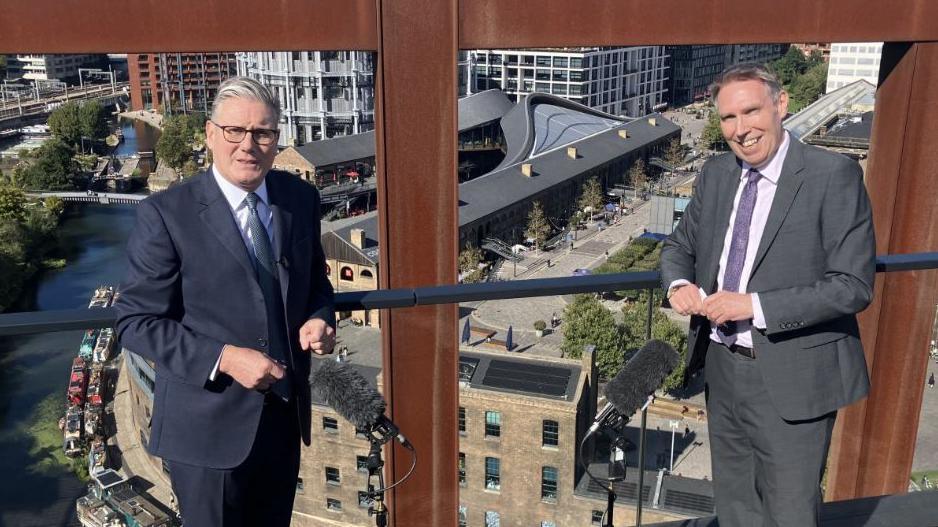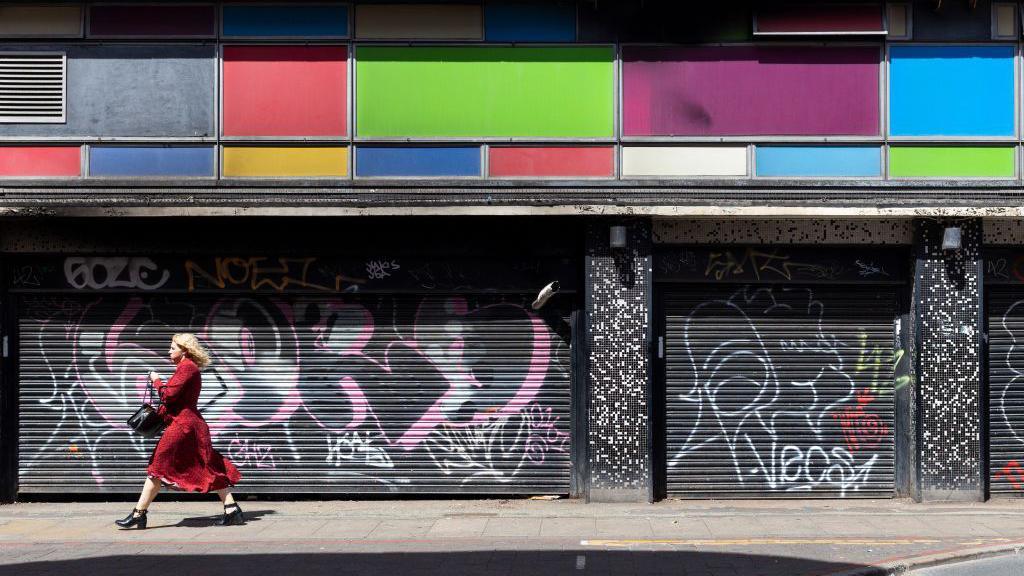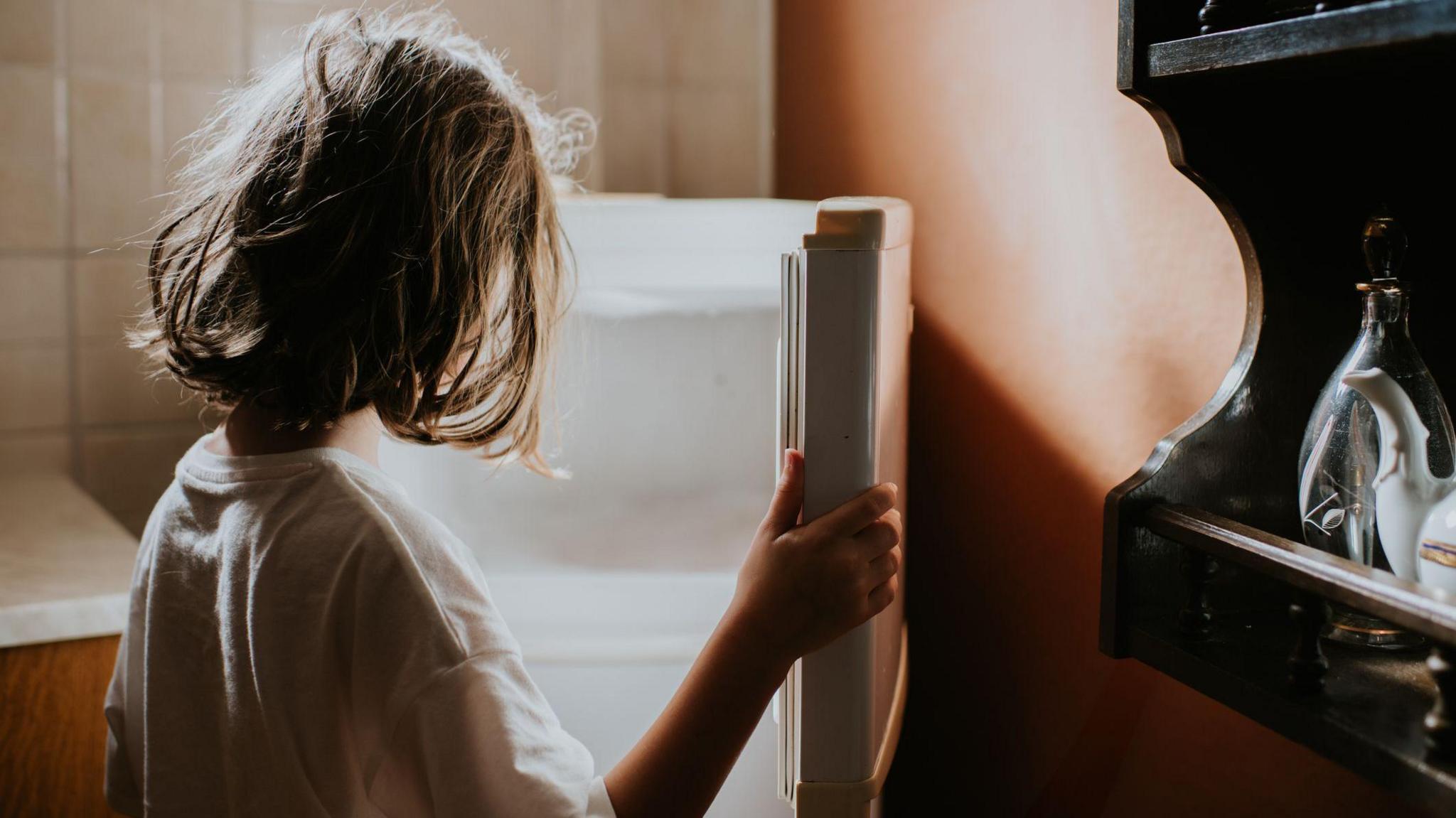Starmer vow on child poverty but not benefit cap

Sir Kier Starmer was speaking to the North East Political Editor Richard Moss
- Published
The prime minister has said he is personally committed to reducing child poverty, but refused to announce plans to scrap rules which restrict benefits to the first two children in a family.
Sir Keir Starmer said child poverty was "an important issue" in the north east of England and promised to "do what we need to do" to tackle it, but would not say if he agrees with his education secretary's description of the two-child limit as "spiteful".
He insisted there was no "silver bullet" and he wanted to let the Child Poverty Task Force of ministers finish its work.
A group of 90 North East charities and organisations recently wrote to Chancellor Rachel Reeves calling for her to scrap the limit.
The signatories estimate the policy, first introduced by the Conservatives in 2017, now affects 70,000 children in the region.
Among those calling for a change was Clare Morley, CEO of North Tyneside-based charity Rise, who said: "Lots of the causes of inequalities are complicated, but scrapping the limit at the autumn Budget will go a long way to giving children in our region the start in life that they deserve."
'Pushed into hardship'
The prime minister told the BBC: "We've got to get child poverty down and it's an important issue for the North East.
"The last Labour government got child poverty down and it's one of the proudest things that we did - I am determined to do it under this government.
"We've got a taskforce working on this and there's no silver bullet.
"But I want to be clear to you and your viewers, I am personally committed to getting child poverty down and that includes in the North East."
In her campaign for the deputy leadership of the Labour Party, Education Secretary and MP for Houghton and Sunderland South Bridget Phillipson said scrapping the two child limit is "on the table".
Phillipson, who co-chairs the task force looking into the policy, called it a "spiteful attack on children" who "were punished and pushed into hardship through no fault of their own".
Starmer said: "What Bridget is getting at is how do we reduce child poverty.
"I know the impact it's having across the country and particularly in the North East. I'm determined to bring it down and we will do what we need to do to do so."
'Overlooked too long'
The prime minister said he understands the "frustration" of voters who want to see change come quicker.
However, he refused to accept that mistakes made by his government had contributed to voters in May's local election in County Durham backing Reform UK.
Nigel Farage's party gained control of the county council, winning 65 of the 98 seats. Labour, which until 2021 had run the county for 100 years, was left with just four councillors.
Afterwards, the outgoing Durham Labour group leader Carl Marshall, who lost his seat, said the party's candidates repeatedly encountered concerns from voters about the government's cuts to the winter fuel allowance for older people and proposed changes to disability benefits.
The Prime Minister said: "We had to take difficult decisions when we came into power to stabilise the economy.
"We had to get the welfare provisions right and we talked to our colleagues about that earlier this year, but the main frustration is clearly that people understandably want change to happen more quickly."
He pointed to the recently announced Pride in Place funding "which is looking at some of the areas that, in my view, have been overlooked for too long".
Thirteen individual communities in Middlesbrough, Sunderland, County Durham, Newcastle, Gateshead, Stockton, and South and North Tyneside will get up to £20m each over 10 years.
A further £1.5m each has been allocated to Newcastle, Sunderland, South Tyneside, Gateshead, Hartlepool and Middlesbrough.
"We are putting funding into those areas directly for 10 years and alongside that we are giving control to local people over what the funding is used for," the prime minister said.
"So they don't need to come cap in hand to Whitehall, they can actually make decisions about their own communities."
Follow BBC North East on X, external, Facebook, external, Nextdoor and Instagram, external.
Get in touch
Do you have a story suggestion for BBC North East & Cumbria?
- Published25 September

- Published27 March
